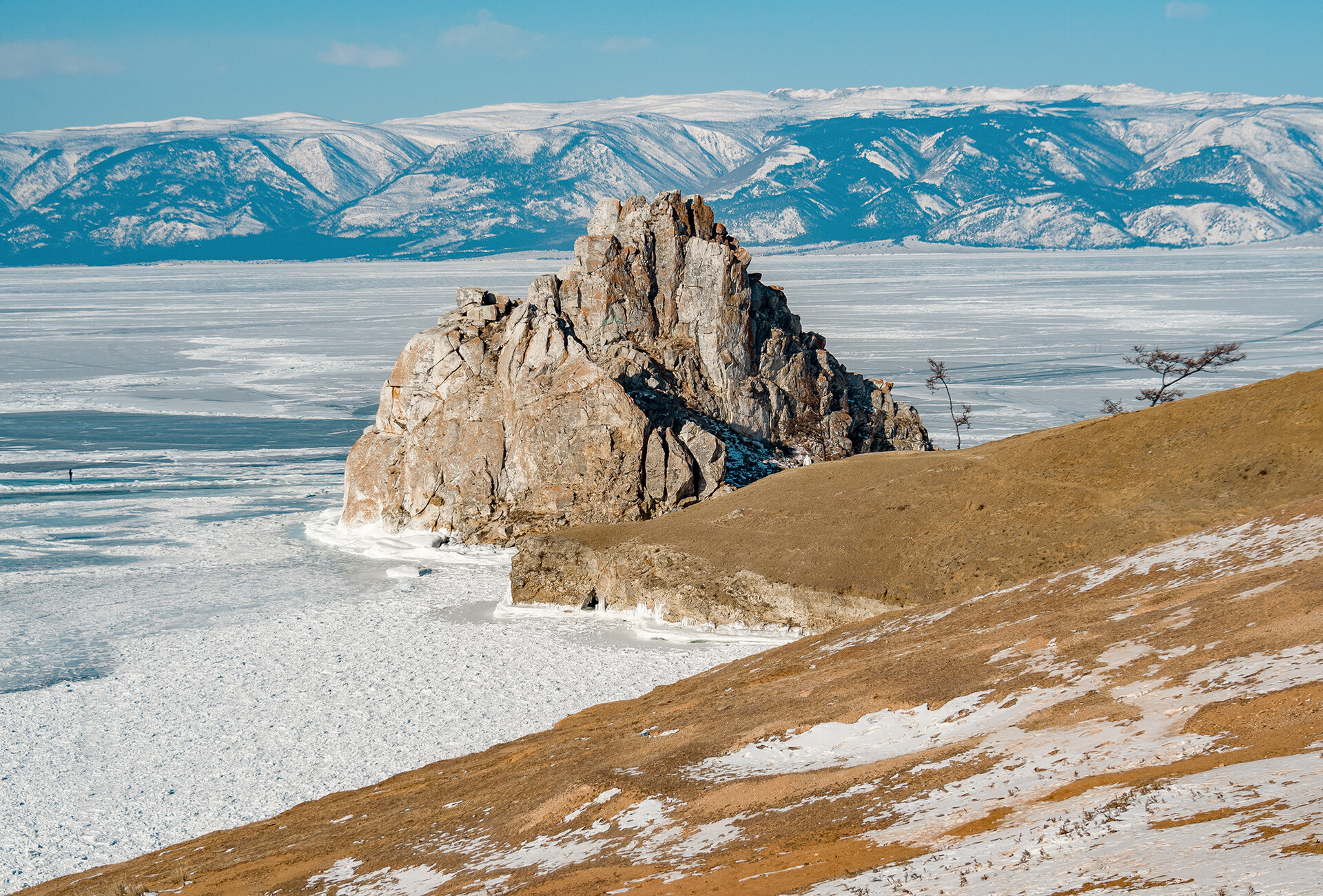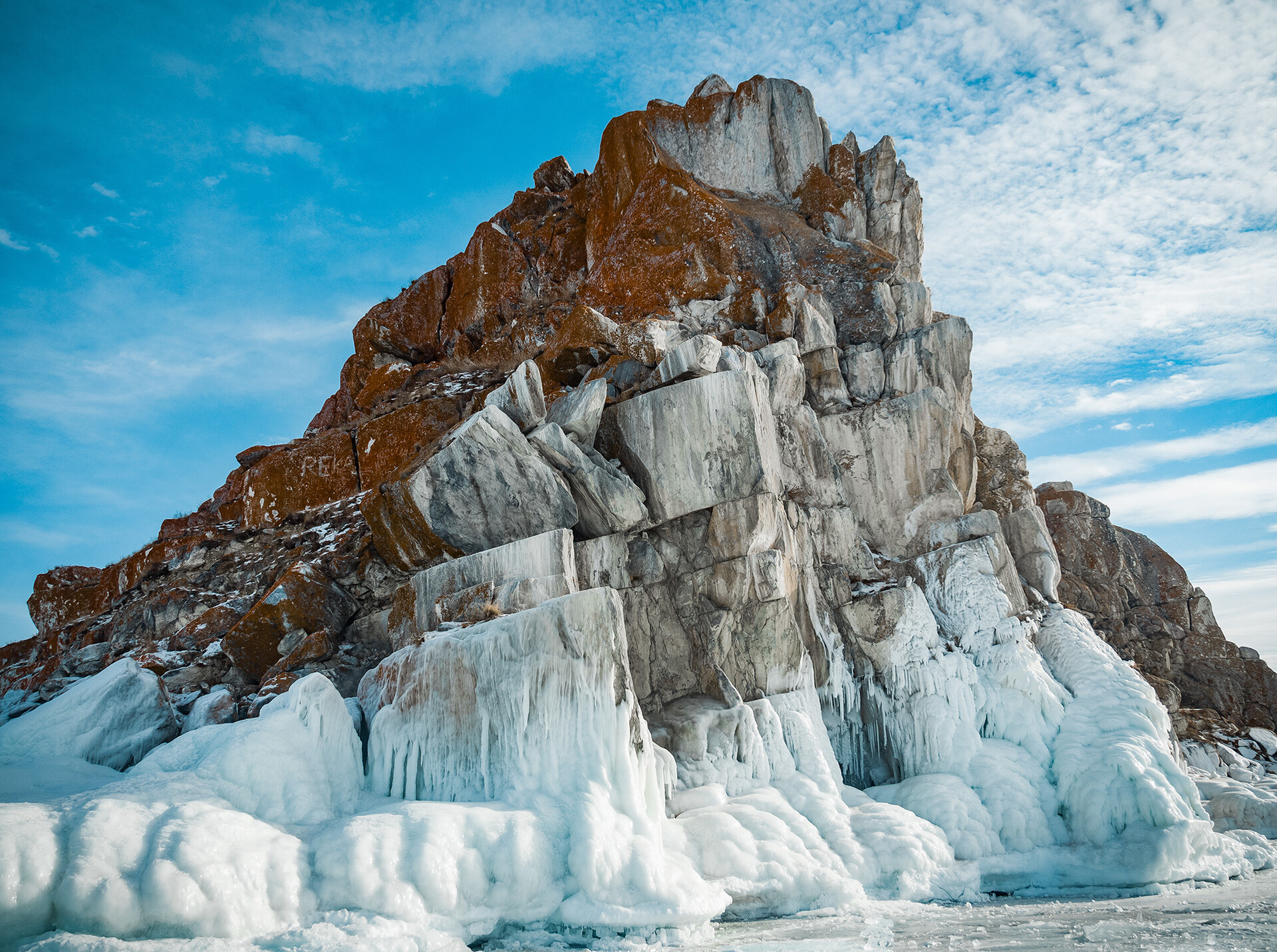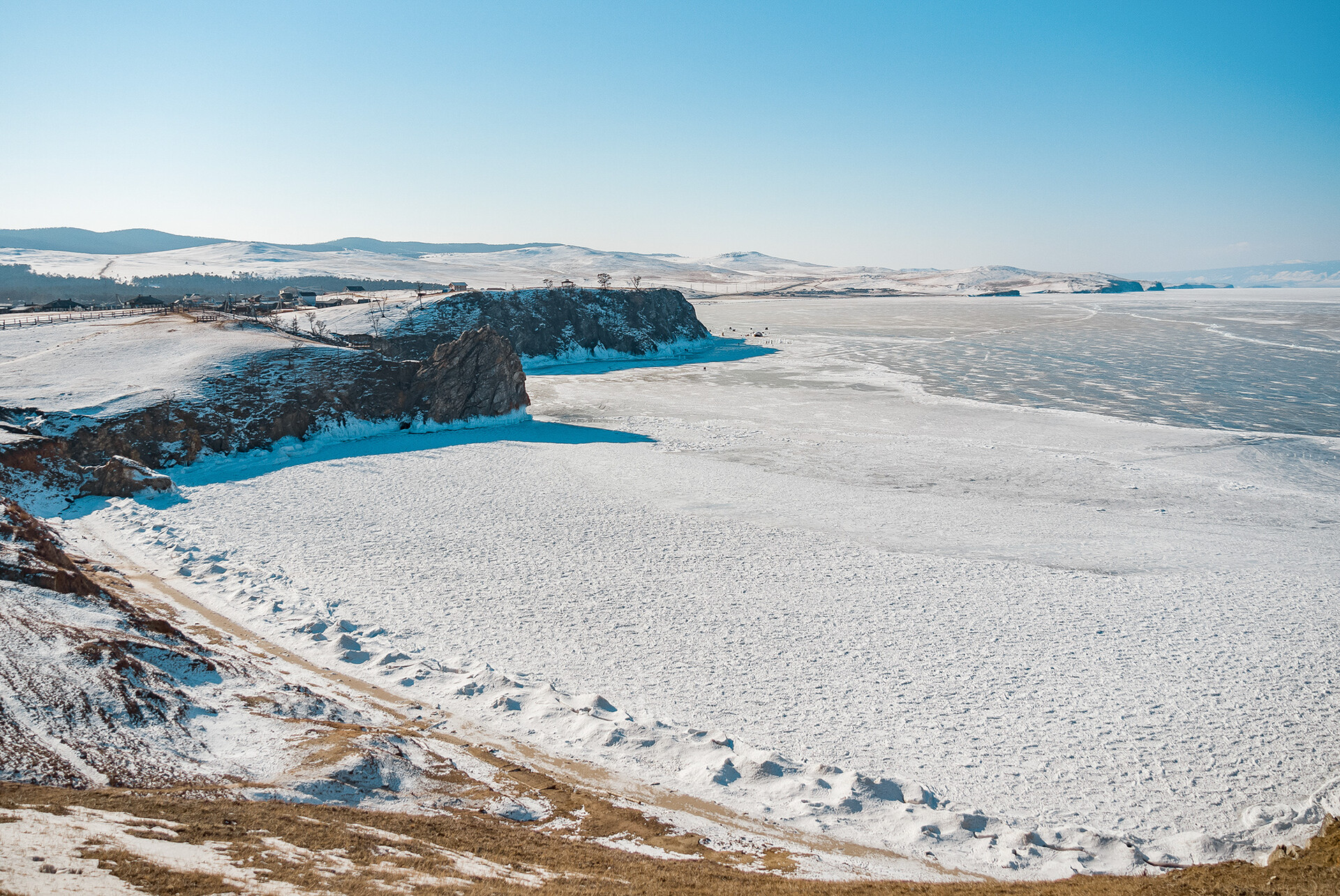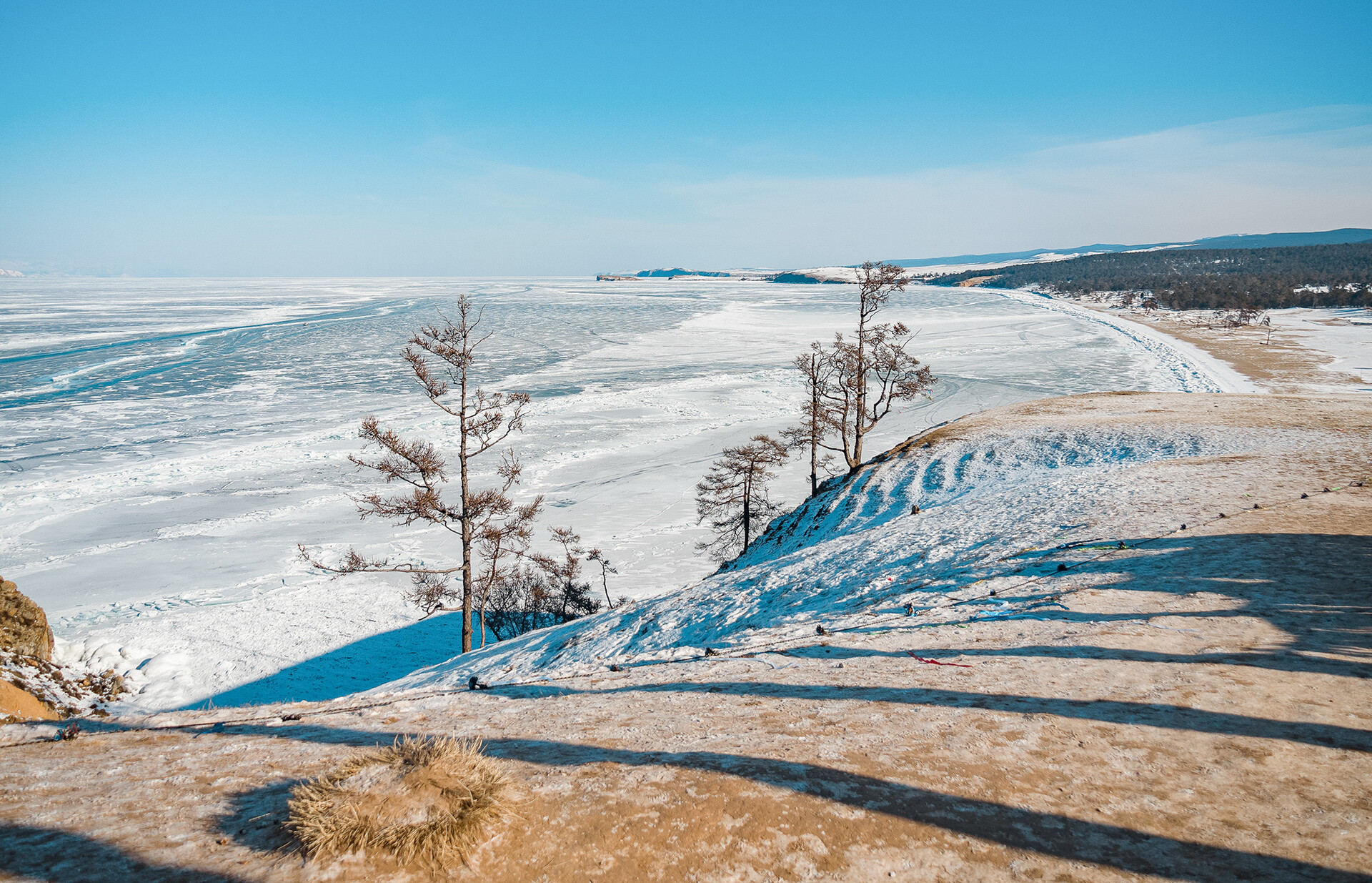

Shamanka Rock, or Cape Burkhan, is located near the village of Khuzhir on Olkhon Island and has the federal status of a natural monument. And, for locals, it is a place of power, which cannot be desecrated by bad thoughts and deeds. There, they make vows, promises, address spirits with requests.

There is also a through cave in the rock, where, in ancient times, rites and sacrifices were performed in honor of the spirit-master of Olkhon, the most revered deity of Baikal. Historically, only male shamans were allowed to enter the cave. Women were forbidden to even approach the cape, so as not to bring bad luck on themselves.

Archaeologists found ancient household items such as arrowheads, ceramics and gold jewelry in the cave and on the isthmus burials, which are considered to be more than 5,000 years old.

And, in the 17th century, when Buddhism began to spread in Siberia, an altar of Buddha appeared in the cave. Lamas from the surrounding datsans would often pray there. Now, it is considered one of the nine great shrines of Asia, along with Shaolin Monastery in China and Mount Kailash in Tibet.

Dear readers,
Our website and social media accounts are under threat of being restricted or banned, due to the current circumstances. So, to keep up with our latest content, simply do the following:
If using any of Russia Beyond's content, partly or in full, always provide an active hyperlink to the original material.
Subscribe
to our newsletter!
Get the week's best stories straight to your inbox